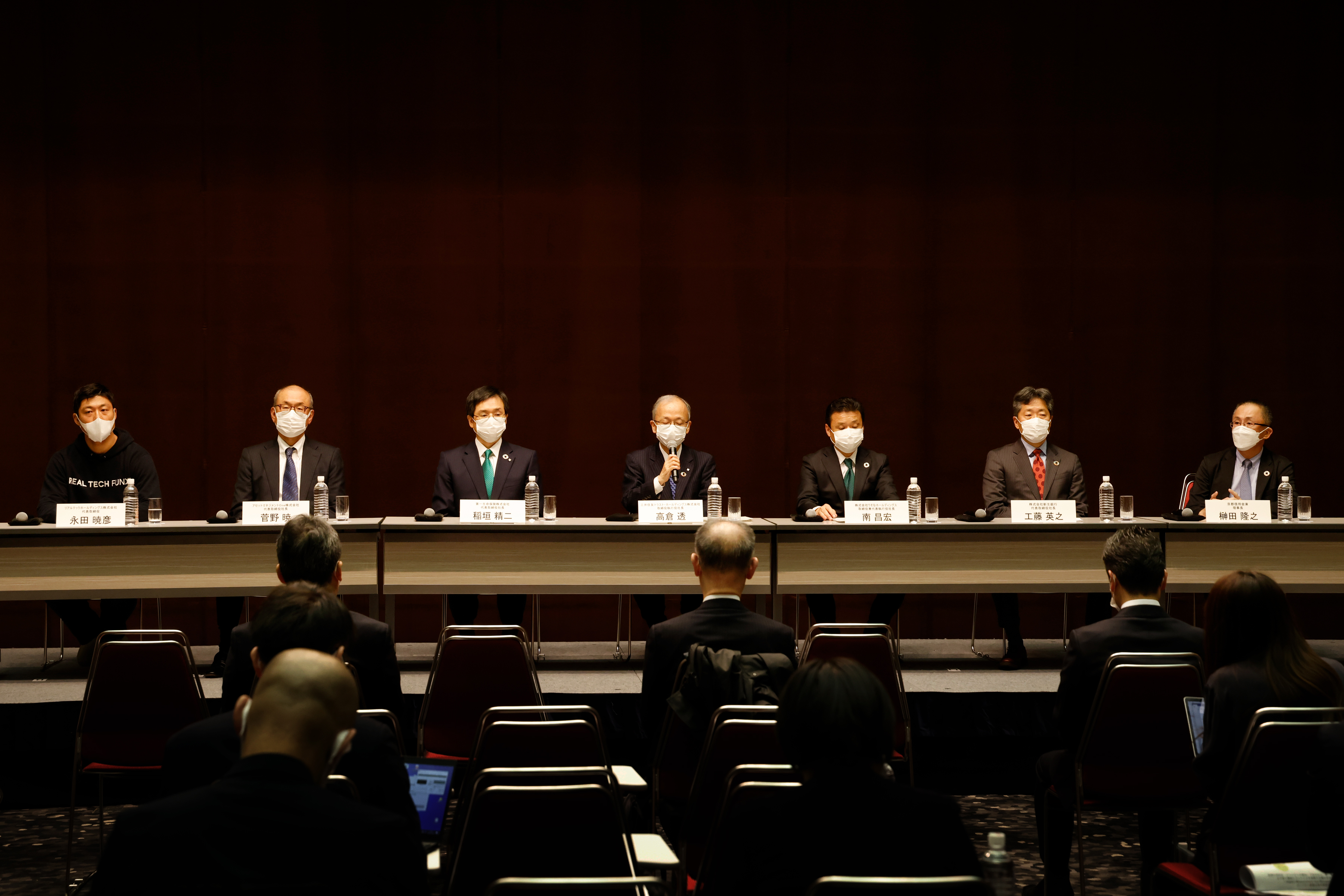Japan’s top banks join forces to boost impact investing
Leading Japanese financial institutions including the country’s largest bank have joined the Japan Impact-driven Financing Initiative, pledging to bolster the impact investing market in the country.
Among the initiative’s 21 signatories are some of the biggest names of the country's financial sector, including MUFG Bank – which is Japan’s largest bank with a capital stock of ¥1.7tn (USD15bn) – as well as Sumitomo Mitsui Trust and Shinsei Bank, plus several regional banks and smaller venture capital firms.
In addition to investing in impact and implementing impact measurement and management processes individually, the signatories will collaborate with each other to share their action plans, challenges, lessons learned and best practices in order to grow the impact market. They will hold their first meeting as early as this month, with another planned in January, Pioneers Post was told.
Junichi Hanzawa, president and CEO of MUFG Bank, said the bank had joined the initiative to “identify business opportunities and enhance risk management methods that contribute to solving environmental and social issues, and to fulfill [its] role as a financial institution as expected by society”.
Hanzawa added that MUFG Bank already proposed impact-oriented products such as green bonds, and aimed to “contribute to solving environmental and social issues in a wide range of fields” through its cooperation with the other signatories.

Above: financial leaders at the launch of the Japan Impact-driven Financing Initiative this week
The plan to bring financial institutions together to support impact investing in Japan was initiated by the Japan Social Innovation and Investment Foundation (SIIF), an organisation that promotes impact investing and serves as a secretariat for both the initiative and for the Global Steering Group for Impact Investment (GSG) National Advisory Board for Japan.
GSG is an international organisation dedicated to the development of impact investing around the world, and has a network of advisory boards in 33 countries plus Europe.
The drafting of the initiative was led by Sumitomo Mitsui Trust Holdings and Resona Holdings, because they were already heavily involved in promoting impact investing, Pioneers Post was told.
Toru Takakura, director and president of Sumitomo Mitsui Trust Holdings, said the institution wanted to “make sustainable society a reality”. He added that the initiative would “bring about a virtuous circulation of funds, assets and capital”, stimulate sustainable growth of businesses and “contribute to the growth of the Japanese economy which has remained stagnant for so long”.
Important milestone
The total impact market in Japan has grown rapidly in the past few years, going from from ¥33.7bn (USD300m) in 2016 to ¥512.6bn (USD4.5bn) in 2020 according to a GSG estimate.
Mitsuaki Aoyagi, member of the GSG National Advisory Board for Japan and vice-chair of SIIF’s executive committee, said the launch of the initiative was “an important milestone on our journey to mobilize the Japanese financial sector to tackle social and environmental issues”.
Aoyagi added that he felt the country had “finally come very far” since the GSG National Advisory Board for Japan was established in 2014, “yet we are just at the starting line to scale real impact”.
More institutions are expected to join the initiative in the near future and talks with one of the country’s major insurance companies are currently underway, Pioneers Post understands. Each institution’s specific pledges will be announced as they publish their action plans.
More financial institutions’ top management teams need to recognise impact creation not as a bonus but as a core goal
In recent years, several policies have been supportive of social impact investing in Japan, such as the Dormant Accounts Utilisation Bill, implemented in 2016, which allows for the use of dormant bank accounts money for social-impact investments, and was expected to channel USD700m such investment yearly.
A number of regional authorities have also launched social impact bonds, including in Hiroshima and its surrounding region, and in Hachioji and Kobe city.
According to a recent GSG consumer survey on impact investing, 19% of Japanese people are interested in purchasing impact investing products.
But to make impact investing mainstream in Japan, Aoyagi said top management teams in more financial institutions needed to recognise impact creation “not as a bonus but as a core goal”, and new skills were needed to “effectively generate profit and impact at the same time”. Collaborative work to improve impact measurement and management was needed, and the participation from more diverse players, in particular asset owners, would be “critical”, he added.
Top picture: Marunouchi, Tokyo's financial district. Credit Big Ben in Japan via Flickr.
Thanks for reading our stories. As an entrepreneur or investor yourself, you'll know that producing quality work doesn't come free. We rely on our subscribers to sustain our journalism – so if you think it's worth having an independent, specialist media platform that covers social enterprise stories, please consider subscribing. You'll also be buying social: Pioneers Post is a social enterprise itself, reinvesting all our profits into helping you do good business, better.



